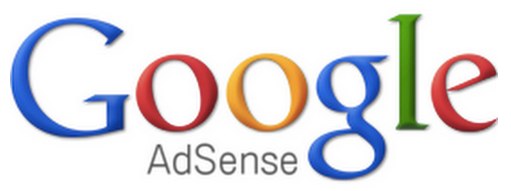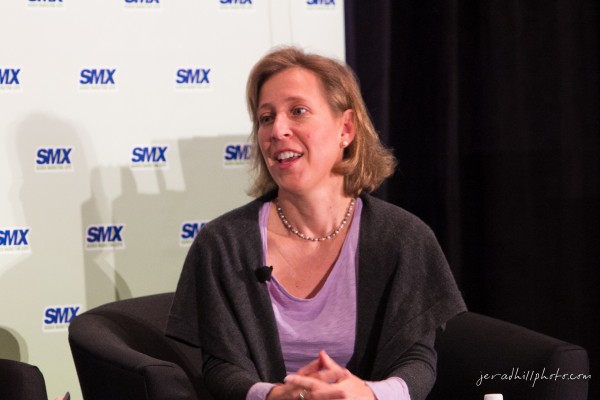AdSense Turns 10: Reflections On Google’s Great Leap Beyond Search Ads
Google AdSense turns 10 today. For Google, AdSense was its first big push into advertising beyond search ads. It led directly to Google’s eventual growth in display advertising. It led to the birth of new, good sites being able to fund themselves easily off of ads. It also gave birth to “made for AdSense” garbage […]

Google AdSense turns 10 today. For Google, AdSense was its first big push into advertising beyond search ads. It led directly to Google’s eventual growth in display advertising. It led to the birth of new, good sites being able to fund themselves easily off of ads. It also gave birth to “made for AdSense” garbage sites that Google has to fight against. Time for some reflection…
You won’t find Google marking the AdSense anniversary today. Similar to how Google itself has at least two different birthdays, AdSense also has several. Today’s date marks ten years since Google launched its “Content-Targeted Advertising,” the program it later renamed “AdSense.”
The program rolled out initially without announcement on Feb. 27, 2003, discussed in forums like Webmaster World and covered by the tech press. A few days later, Google formally announced the program on March 4, 2003. But, that’s not the birthday Google will celebrate.
Instead, June 18 will mark the official AdSense birthday, as that’s when in 2003, Google renamed its program to AdSense and expanded it for use by a wide-range of publishers. June 18 is the date Google used to mark AdSense’s eight birthday, in 2011.
Don’t worry. We’ll mark the official birthday with coverage, including a variety of perspectives of what AdSense has meant in the 10 years since it was launched. But to start things off, I wanted to share some of things that are top-of-mind with me, on its “early” birthday.
The Origin Of AdSense
Prior to AdSense, Google earned money off search ads. People searched, and advertisers had ads that appeared near the “free” or “editorial” search results, just as it happens today.
However, Google had been developing technology to do “contextual” ad placement. The idea was that Google could read the words on a webpage, then insert ads that were deemed relevant to the “context” of that page. No search was conducted, but somewhat similar to search, the ads were much more targeted than a typical display ad. They were contextually targeted to what someone was reading.
Google wasn’t alone in the contextual ad arena. Companies and products ranging from eZula to Gator to IndustryBrains to About.com’s Sprinks were in the space.
Also competing was Applied Semantics, which had a contextual ad product called … AdSense.
When Google bought Applied Semantics in April 2003, it gained technology to bolster its pre-existing contextual ads program, as well as the name that the program was later changed to, AdSense. And that, kids, is how Santa Claus, er, AdSense, got its name.
If you’re interested in more of the behind-the-scenes about how AdSense got started, get Steven Levy’s book, “In The Plex,” and read Chapter 3. Read the rest of the book, too, because it’s excellent.
The Opportunity
Until AdSense, Google’s ads were both restricted to search and to select partners that carried its search listings. AdSense broke Google away from being search-dependent and also gave it a “long tail” of partners all over the Web. As I wrote at the time:
The potential exists for the entire Web to be Google’s ad canvas. Everything could become Google’s indirect content.
That’s exactly what happened. These days, it can seem like there’s no escaping Google’s ads on sites outside of Google, ads that have evolved from the original text-based contextual ads to include traditional image-based display ads, as well as video ads.
The shift also greatly diversified Google from getting the vast majority of its revenue only from search. However, that diversity was lost on many analysts, who then criticized (as some still do today) that Google was too ad-dependent. In real-world terms, it was like criticizing a Yellow Pages company for having expanded into distributing ads into print, TV and radio.
The Initial Fallout With Advertisers
While AdSense turned into a great success, there was huge concern on behalf of search advertisers. They suddenly had Google pushing a new ad format on them that wasn’t search, that didn’t convert like search and that couldn’t be bidded upon separately from search.
I can recall Google execs taking heat over this from upset advertisers, during conference panels I moderated that year. Despite this, Google continued to drag its feet about allowing advertisers more control.

Google’s Susan Wojcicki, who oversaw the birth of AdSense
That was then. Today, AdSense offers a wide-range of control, as Google’s senior vice president of advertising, Susan Wojcicki — who oversaw the birth of AdSense at Google back in 2003 — reflected about when talking at our SMX West conference last year.
Ironically, Google has come a bit full-circle with the launch of Enhanced Campaigns for AdWords. Once again, it finds some advertisers upset over a loss of control, though I’d say the reception is much more muted than what happened with AdSense, including some who are positive about the coming changes.
Enabling Publishers
Before AdSense, earning money as an independent publisher was largely hoping that Amazon referral links, along with maybe some other affiliate programs, and that perhaps a “tip jar” might help pay the bills.
AdSense was transformative here, especially when the program was formally renamed to AdSense and expanded to virtually anyone through a self-serve model.
Almost overnight, it seemed, everyone was running AdSense. With just a little code, a site could bring in cash, sometimes lots of cash. In turn, that did enable new publishers to get started as Google had hoped. As Wojcicki told me when the self-serve program opened:
From the user standpoint, this will be good. Not only will it fund quality publishers to produce quality content, it will also produce a better user experience, because they’ll be able to see ads that are related to the content.
Among them, I always get a smile remembering how Chloe Spencer, daughter of veteran search marketer Stephan Spencer, once spoke about how she was earning $900 per month writing a blog about Neopets.
Of course, Google didn’t tell advertisers how much of the cut it was keeping for itself. It took seven years until the company finally opened up that publishers (excluding those with direct deals) got 68% of revenues earned from their ads, with Google keeping 32%.
Enabling Garbage
Along with the good, however, came the bad. Within a year of AdSense opening in self-serve, the term “Made For AdSense” started showing up, in reference to sites that really didn’t exist for any other purpose but to draw clicks on ads. Some were filled with nonsensical copy, topped by ads. Some simply “scraped” or copied content from other sites.
There was — and still is — no end to the irony that AdSense causes for Google. Executive chairman Eric Schmidt has spoken many times about the “cesspool” of the Web, yet it’s easy to show how his own company helps fund that cesspool. My 2010 post, The Google Sewage Factory, In Action: The Chocomize Story, is one illustration of this — and it would be exceptionally easy to do an updated 2013 version.
 Another example is that AdSense ended up fueling many sites considered to be “content farms,” which in turn caused complaints that Google’s search results were rewarding so-so content and suspicions this was allowed since ultimately, Google was making money.
Another example is that AdSense ended up fueling many sites considered to be “content farms,” which in turn caused complaints that Google’s search results were rewarding so-so content and suspicions this was allowed since ultimately, Google was making money.
In response, we got the Panda Update in 2011, which hit many major AdSense-backed sites (along with non-AdSense sites, too).
Google’s search team was also so concerned about sites that are top heavy with ads that it rolled out a special “Top Heavy” penalty for these last year. As my article at the time noted, the same day the penalty was announced, I received a message from AdSense encouraging me to put more ads on my pages (not necessarily at the top, but still…).
Enabling Conflict Of Interest
To me, the most serious issue AdSense raised was that it opened Google up to inevitable accusations of having a conflict of interest. If you’re a search engine sending traffic to other sites, and some of those sites carry your ads, some will believe you’ll want to favor those sites and close the loop.
As I wrote when the program launched:
Ideally, Google wants to earn by paid links on its own site. However, contextual ads give the company a second chance to earn, if the first line of defense of ads on its own site fail. If Google ranks sites that carry its ads higher than those without, Google could increase the odds of earning this secondary income.
In the past, Google has said it does not want to offer a paid inclusion system for fear that selling inclusion into its editorial results might cause consumer distrust of those results. Now contextual ads establish exactly the same connection between money and its editorial results that the company has wanted to avoid.
Even if Google plays fair — and the company’s history is that it will — it’s still guaranteed that you’ll begin to see such accusations that it plays favorites made as the contextual ad program enlarges.

Google CEO Larry Page
Google assured then that it wouldn’t favor AdSense sites, with Google cofounder Larry Page later telling me that year:
That’s not something we would ever consider doing. We wouldn’t bias our search results based on the monetary relationships we have with people…. It would be sort of dumb for us from an economic perspective. Let’s make a little bit more money and in return get everyone in the world upset with you.
Today, of course, Google does favor monetary relationships for some of its search properties, most notably Google Shopping. But Google has also decided that the “pay-to-play” paid inclusion model it uses in these cases supposedly helps search relevancy (Microsoft would disagree; I find both companies have issues).
But, in terms of AdSense, I’d say Google’s walked the line pretty fairly. Plenty of sites without AdSense get lots of traffic. Plenty of sites with AdSense have been penalized by things like the Panda Update (see also our three part series on Panda, which has its own birthday this week, its second).
Interestingly, when I speculated what a Google anti-trust action might be like in 2007, I assumed that the conflict with being a search engine and having ads on sites you also list would have been a big issue. As anti-trust attention ramped up in 2009, I was amazed this wasn’t an issue. When we actually got a US Federal Trade Commission review, it still wasn’t a concern (nor has it been a focus of the still-ongoing EU review).
Personally, I wouldn’t take the FTC largely clearing Google of anti-trust charges last month as a sign that there’s no inherent conflict with it having AdSense across the Web. Rather, to me, it’s more a sign that Google competitors managed to force an investigation about “search neutrality” that involved really only them, rather than the millions of publishers out there.
But, as I said, despite there being an inherent conflict, I think Google’s done very well not to let it turn into actual favoritism. My concerns about Google itself becoming a content destination far outweigh those that it’s somehow maneuvering things to reward AdSense sites.
AdSense: The $3 Billion In Profit Business?
As for “AdSense” itself, it has really morphed so much from its origins, an easy way to put text-based contextual ads on a site. AdSense, these days, is the publisher-facing name for Google’s self-serve ad network, delivering everything from those contextual ads into webpages that it started with to ads within games.
As for how big AdSense is, that’s difficult to answer. Google doesn’t report “AdSense” revenue but does break out revenue earned on its own sites versus that earned on sites in its network. Also complicating things is that AdSense includes both search and display ads, so trying to estimate a figure for the more “traditional” view of what AdSense ads are is hard.
Still, we can try. Last year, Google made about $31 billion in revenue off its own sites, with about $12 billion earned from its network. AdSense, potentially, generated about 27% of Google’s total revenue.
Of course, Google has to pay what’s known as “traffic acquisition costs” to its network partners. Here, it does break out AdSense on its own, saying it paid about $9 billion last year. So roughly, that puts AdSense at earning around $3 billion at most. It’s probably less, because we don’t know the pure AdSense revenues. But, it seems likely to be in the $2 billion to $3 billion range.
Happy Early 10th Birthday, AdSense
 Not bad for a service that, according to Steven Levy’s account, took about a year to reach a $1 million daily run rate.
Not bad for a service that, according to Steven Levy’s account, took about a year to reach a $1 million daily run rate.
The milestone was celebrated with a cake, but the amount was unable to be written, even in frosting. Google was both concerned about the quiet period of its IPO that was then underway as well as just generally being secretive.
From “In The Plex,” Levy writes:
Malone had to negotiate the terms of her celebration with Google’s lawyers. Only after some hardball dickering did Malone win a concession: she could bring in a cake to mark the milestone. But the lawyers were adamant that the actual milestone—the million-dollar number—could not appear on the cake.
Perhaps when Google breaks out a 10th birthday cake for AdSense later this year on its formally-recognized birthday, we’ll be treated with new AdSense-related figures.
Until then, Happy Birthday to AdSense on its “early” birthday. As I said, we’ll have more coverage to come later. And if you have your own stories or recollections you want to share now, please comment below.
Contributing authors are invited to create content for MarTech and are chosen for their expertise and contribution to the search community. Our contributors work under the oversight of the editorial staff and contributions are checked for quality and relevance to our readers. MarTech is owned by Semrush. Contributor was not asked to make any direct or indirect mentions of Semrush. The opinions they express are their own.
Related stories
New on MarTech
